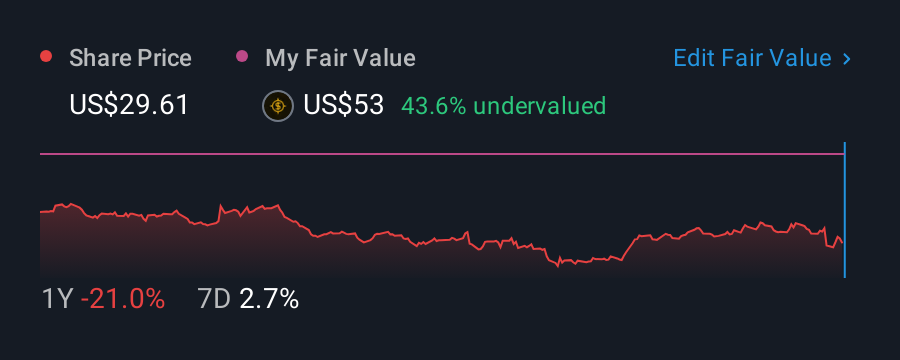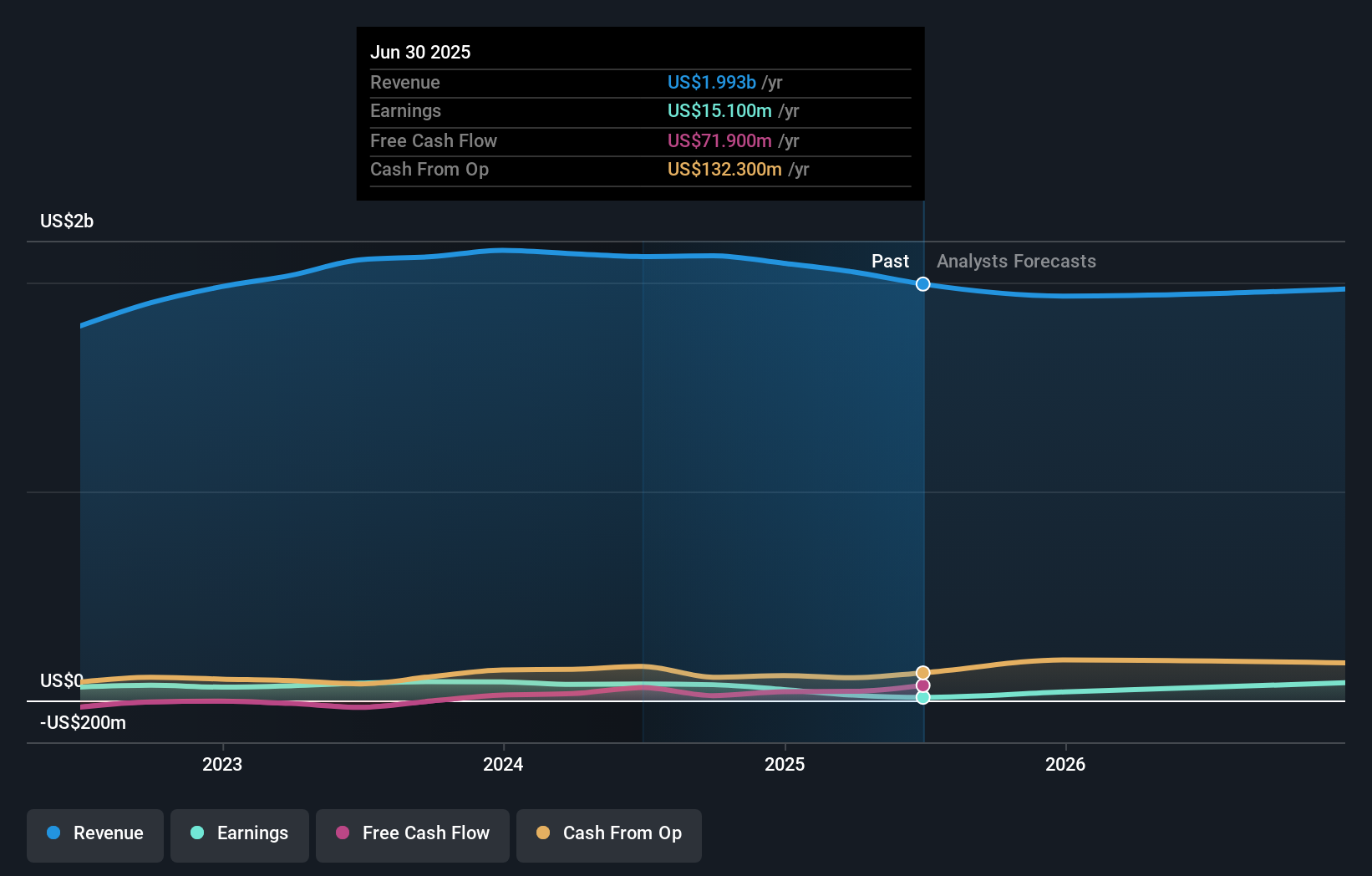

The analysts might have been a bit too bullish on Koppers Holdings Inc. (NYSE:KOP), given that the company fell short of expectations when it released its quarterly results last week. Results showed a clear earnings miss, with US$505m revenue coming in 6.6% lower than what the analystsexpected. Statutory earnings per share (EPS) of US$0.81 missed the mark badly, arriving some 47% below what was expected. The analysts typically update their forecasts at each earnings report, and we can judge from their estimates whether their view of the company has changed or if there are any new concerns to be aware of. So we collected the latest post-earnings statutory consensus estimates to see what could be in store for next year.

Taking into account the latest results, the two analysts covering Koppers Holdings provided consensus estimates of US$1.94b revenue in 2025, which would reflect a discernible 2.9% decline over the past 12 months. Per-share earnings are expected to surge 164% to US$2.02. Yet prior to the latest earnings, the analysts had been anticipated revenues of US$2.02b and earnings per share (EPS) of US$4.64 in 2025. From this we can that sentiment has definitely become more bearish after the latest results, leading to lower revenue forecasts and a pretty serious reduction to earnings per share estimates.
View our latest analysis for Koppers Holdings
The consensus price target fell 12% to US$52.50, with the weaker earnings outlook clearly leading valuation estimates.
One way to get more context on these forecasts is to look at how they compare to both past performance, and how other companies in the same industry are performing. These estimates imply that revenue is expected to slow, with a forecast annualised decline of 5.7% by the end of 2025. This indicates a significant reduction from annual growth of 6.1% over the last five years. By contrast, our data suggests that other companies (with analyst coverage) in the same industry are forecast to see their revenue grow 4.5% annually for the foreseeable future. So although its revenues are forecast to shrink, this cloud does not come with a silver lining - Koppers Holdings is expected to lag the wider industry.
The Bottom Line
The most important thing to take away is that the analysts downgraded their earnings per share estimates, showing that there has been a clear decline in sentiment following these results. On the negative side, they also downgraded their revenue estimates, and forecasts imply they will perform worse than the wider industry. The consensus price target fell measurably, with the analysts seemingly not reassured by the latest results, leading to a lower estimate of Koppers Holdings' future valuation.
With that said, the long-term trajectory of the company's earnings is a lot more important than next year. We have analyst estimates for Koppers Holdings going out as far as 2026, and you can see them free on our platform here.
It is also worth noting that we have found 3 warning signs for Koppers Holdings (1 is a bit concerning!) that you need to take into consideration.
Have feedback on this article? Concerned about the content? Get in touch with us directly. Alternatively, email editorial-team (at) simplywallst.com.
This article by Simply Wall St is general in nature. We provide commentary based on historical data and analyst forecasts only using an unbiased methodology and our articles are not intended to be financial advice. It does not constitute a recommendation to buy or sell any stock, and does not take account of your objectives, or your financial situation. We aim to bring you long-term focused analysis driven by fundamental data. Note that our analysis may not factor in the latest price-sensitive company announcements or qualitative material. Simply Wall St has no position in any stocks mentioned.